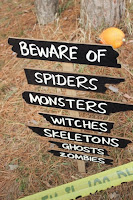Each time I begin a new
mystery about a small, Midwest town, I notice once again the quirks and
benefits of my own town. Some of these episodes I use in my books just as they
happened, and others I embellish. I have lived in a one million+ city so I’m
not immune to the charms or drawbacks of large places. All the same, I love
living in my small Midwest town, and, frankly, it provides great fodder for
the settings of both my Endurance and Sweet Iron mysteries.
Just recently, I was
daydreaming at the stoplight on my way to the bank. Several cars were behind
me, and I don’t know how long I sat there oblivious to the light. Eventually, I
looked up, saw the green light, and drove into the intersection. Ordinary, you
say. So what? You think. If I were in a metropolitan area, I’d have at least
six people honk their horns to move me along. Several would literally lay on
their horns. But here in my little town, not a horn, not a road rage incident,
and not a single person yelling out the window or making an obscene gesture.
This is a great snippet of information for the book I’m working on where people
from a more cosmopolitan area visit my little town. Its lack of speed will
drive them crazy. Tee hee.
At the time I was
daydreaming, I was on my way to the bank because I needed to get ten crisp
one-dollar bills to put in my grandchildren’s Halloween cards. [Thank God they
are still young enough to
 |
| Photo by Jen Theodore at Unsplash.com |
In Three May
Keep a Secret, I used a situation in my town and exaggerated it a bit. An
intersection in our town, just off the Square, was a through street with stop
signs on the east/west streets. People driving north and south went straight
through. East/west had to stop. It has been this way for decades. The town
fathers—what were they thinking?—decided to change the intersection to a
four-way stop. They put stop signs in the middle of the north/south street
between lanes so people would notice them.
As Jill in my
book said, “Drivers knocked over and splintered three sets of signs. Obviously,
the four-way stop wasn’t working. So then they voted to put a sign in the
middle of the intersection saying, “Stop if pedestrians are in the walkway.”
This resulted in people slowing down to read the sign and getting rear-ended.
[This part is a true story.]
As Jill
continued, “Great day for Bert’s Collision Shop. And one of the casualties was
Mayor Blandford’s wife, Polly. She was arrested for causing a public
disturbance because she got out of her car and marched back to Genevieve Blackburn,
who was talking on her cell phone when she rear-ended Polly’s car. McGuire [the
policeman] had to pull the two away from each other, and Polly took a swing at
him too.” [Well, so I exaggerated a bit.]
Right now I’m
looking out my front window at the fire hydrant in my yard. For years I asked
the fire department to paint it because it was an eyesore. They were “too
busy.” I decided to buy the red paint and do it myself. I think there must be a
story in this little incident. I’m working on it…




In Atlanta we had a choice: silver or red fire hydrants. The crew rang the bell and asked. In Cincinnati, hydrants are yellow. Go figure.
ReplyDeleteHi Margaret. I am told that the fire hydrants in our town are painted specific colors because they somehow indicate the volume of water available. Way back in college, we used to paint the college hydrants in the school colors or add polka dots. Of course, that was the crazy 1960s. So now I am not allowed to do that. I guess that is called progress?
ReplyDeleteFire hydrant?
ReplyDeleteWhere I live, they dispatch tanker trucks to draw water from ponds and lakes and send that to fires.
And one thing to consider if you're buying a house around here is how expensive fire insurance is if the house is situated beyond the covered bridge, which cannot accommodate the weight of fire trucks, or past the old (still used at least twice a day) railroad bridge whose underpass is not tall enough for them.
We do, however, have a fantastic ambulance service. It serves a ski resort nearby, and maintains totally up-to-date service and equipment.
Sounds like you are in a good place and know exactly what to do about real estate. So who does put out fires if they are beyond the covered bridge or past the railroad bridge?
ReplyDeleteIt is fun to add the little quirks that residents know accurately reflect their towns,
ReplyDeleteYou are so right, Warren! I have been compiling them lately.
ReplyDeleteIf the regular fire engines can't reach a house fire, the brush fire vehicles will be dispatched. And in a really dire situation, a helicopter will carry personnel and equipment, if there's a place to land.
ReplyDeleteTheoretically, a helicopter with a tank or fire-surpassing foam could be launched, but by the time it got there, the house would probably be a pile of smoking ashes, so it will only go if it looks like the fire has a chance of spreading into the forests.